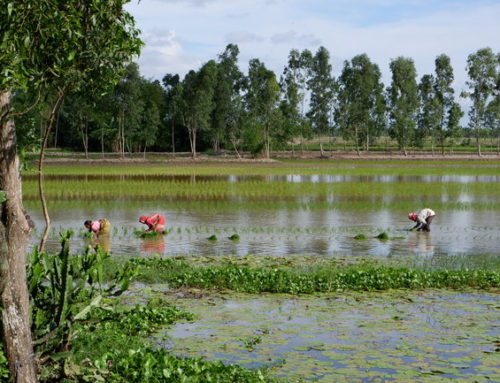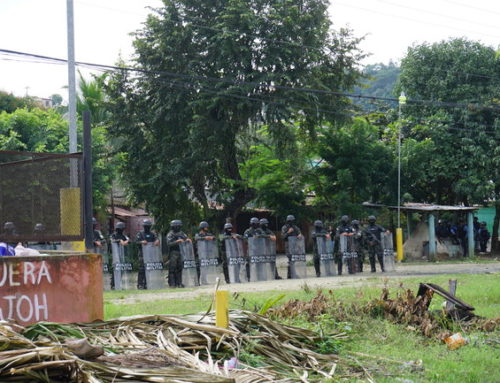I moved to Piracicaba, a town in the state of Sao Paulo, Brazil, in November 2019 to study how a network of entrepreneurs, financial investor, corporate executives, and agricultural producers work to create a Brazilian and rural version of the Silicon Valley. In February, before coronavirus reached the country, I went to an agtech accelerator, a financial business that invests in agricultural startups and provides them with mentorship and networking. The founder of the place told me that I had moved to the right town, and I was studying the right people. He cited Marx to say that capitalism, once installed, was inevitable. He added: Lenin was better than Marx because the former argued that capitalism could be stopped by historical and social revolutionary forces. Yet, the revolutions that existed so far were not strong enough to destroy the system. Although capitalism suffered, it was strong: it melted, metamorphosed, and continued to exist. All this was to conclude that his agtech accelerator was set in a context when capitalism was in deep transformation, and he expected to lead it as an agent of innovation. It was risky, he said, but if he made the right moves, his business would succeed commercially and would shape the pathways to create a more digital, rational, and efficient industrial agriculture.
A month later, Brazil had its first cases of COVID-19. I kept my research going until I attended an event organized by an international fertilizer corporation. Like the founder of the agtech accelerator, agricultural corporations are also interested in finding – and founding – new business opportunities based on high technology. In this event, the head of innovation of the corporation invited nine startups to pitch their ideas on how to address some of the corporation’s problems. A team of agronomists, heads of marketing, and innovation agents watched the startups, posed questions and later had a closed-door meeting to decide which would be possible strategies for the corporation: was it big data? Biological fertilizers? New machines for measuring the quality of the soil? The team expected to make the right decision, which meant adopting the best strategy to the fertilizer corporation, and consequently to impact the whole market in the near future.
The day after the event, my voice was hoarse, I couldn’t stop coughing and I felt dizzy. I texted the person who gave me access to the event and told her I was neurotic: I had read so much about coronavirus that I was feeling some of its symptoms. She responded that her boss, the head of innovation of the company, had attended the meeting just after returning from Italy. I got angry and told her he was irresponsible for not staying at home and safeguarding his staff. A few hours later, I went to the hospital, as the local authorities were recommending suspicious cases to be tested, even with mild symptoms (the recommendations changed: now we are supposed to stay at home, unless the illness becomes severe). The doctor said that I had no fever and no shortness of breath, so I could return home.
After that, I decided to follow social distancing protocols. In a couple of days, as the news were becoming more serious, businesses began to close their doors – including the places where I was conducting my ethnography. I thought my research was going to stay on hold. But as that accelerator founder had warned me a month earlier (citing Lenin and Marx): capitalism melts, suffers, but it also has the capacity to adapt and shapeshift.

Sugarcane farm where rural workers use digital technologies produced by agricultural startups
No more than a couple of days after the government determined the shut down of non-essential places, my social media platforms were flooded with a surprising number of webinars, live stream videos, economic reports, and newspaper articles about what innovation agents and businesses could do to survive the pandemic. Startups’ staff are now working from home. Some founders began to provide psychological support to the team; others started to organize online happy hours and even live-streamed lunchtime videos. Angel investors and venture capital firms now conduct their rounds of investments using online platforms and text message apps. Accelerators keep their programs of mentorship working remotely and, in order to remain visible and present, organize daily webinars and talks giving advice to entrepreneurs.
To keep up with this shift, I’ve been working even more than before. I’ve been watching videos of all sorts that my interlocutors produce at a very fast pace, and I’ve been reading e-books, articles, and essays written by innovation agents on a daily basis. But more importantly, my access to certain people and certain spaces became easier. Maybe because businesspeople are now online full time, they respond to my requests to schedule appointments immediately. Many of them have also been giving me access to strategic meetings that I had tried to attend before but at which I was not welcomed.
The innovation agents I read or interview say that nobody knows what is going to happen in the future. Investors don’t know where they should put their money, entrepreneurs don’t know whether they should fire their team, and economic reports provide different forecasts. As a venture capital investor explained: “Capital exists, it doesn’t vanish. What we have to know is where we are going to put it.” I am sure that closed-door meetings to decide business strategies still happen, but people are more flexible in discussing them publicly right now because whoever takes economic decisions needs to exchange impressions and information. The online world became their site of doing so. As one investor said: “We are in a battlefield. Imagine you are suddenly thrown from an airplane into a battlefield, with a disassembled weapon. You have to figure out your enemies, put the weapon together, and learn to shoot. Everything at the same time!” This is why he has been participating in many meetings, reading many news articles, and talking to many different people – somehow what I have also been doing.
The pandemic has brought a scenario of uncertainty. But more importantly, it has revealed that the world we live in and the structures that seem so overarching and transcendent are, actually, crafted by us. For this reason, scholars worldwide have been inviting us to think of this critical moment as a possibility for a complete rupture with capitalism (Butler 2020; Harvey 2020). Others, less optimistically, suggest that this is a time when neoliberal and/or authoritarian trends find new pathways and get strengthened (Han 2020; Lapavitsas 2020). Innovation agents seem to share this diagnostic, and they are meeting online to think collectively what to do in order to keep capital flowing. Consequently, the only certainty we all have, from the left and from the right, is that capitalism will not reproduce itself easily. I decided to follow this battle and to ask how capitalism has to produce and reproduce itself in a deep crisis – ethnographically.
Although the continuation of fieldwork for many of us sounds like a very difficult, if not impossible, task, it can shed light on processes that we were already studying. We are living uncertain moments, where projects, desires, and futures are in dispute. Who’s going to win, how and why, is not clear yet. But one of our main contributions as anthropologists is to provide ethnographic material alongside social analyzes on how these disputes unfold. Even if fieldwork based on face-to-face interaction is compromised, most of the world population is now living under exceptional circumstances. We are not alone in our loneliness. I was lucky to study a world that is, so far, very active, precisely because entrepreneurs, investors, corporations, and agricultural producers look for ways of determining the ways we will live in the future. I decided to embrace it as participant observation and find ways of investigating how people maintain social distancing while they keep their business (in my case, literally) in motion.
References:
Butler, Judith. 2020. “Capitalism Has Its Limits.” Verso Books. March 30, 2020. https://www.versobooks.com/blogs/4603-capitalism-has-its-limits.
Han, Byung-Chul. 2020. “La emergencia viral y el mundo de mañana.” EL PAÍS. March 21, 2020. https://elpais.com/ideas/2020-03-21/la-emergencia-viral-y-el-mundo-de-manana-byung-chul-han-el-filosofo-surcoreano-que-piensa-desde-berlin.html.
Harvey, David. 2020. “Anti-Capitalist Politics in the Time of COVID-19.” Jacobin. March 20, 2020. https://jacobinmag.com/2020/03/david-harvey-coronavirus-political-economy-disruptions.
Lapavitsas, Costas. 2020. “This Crisis Has Exposed the Absurdities of Neoliberalism. That Doesn’t Mean It’ll Destroy It.” Jacobin. March 27, 2020. https://jacobinmag.com/2020/03/coronavirus-pandemic-great-recession-neoliberalism.
Cite as: Bádue, Ana Flávia. 2020. ” “We are in a battlefield”- and I Went Online to Make an Ethnography of Capitalism in Crisis” In “Pandemic Diaries” Gabriela Manley, Bryan M Dougan, and Carole McGranahan, eds., American Ethnologist website, APRIL 23 2020 [https://americanethnologist.org/features/collections/pandemic-diaries/we-are-in-a-battlefield-and-i-went-online-to-make-an-ethnography-of-the-battle]
Ana Flavia Badue is a PhD Candidate at The Graduate Center, City University of New York



